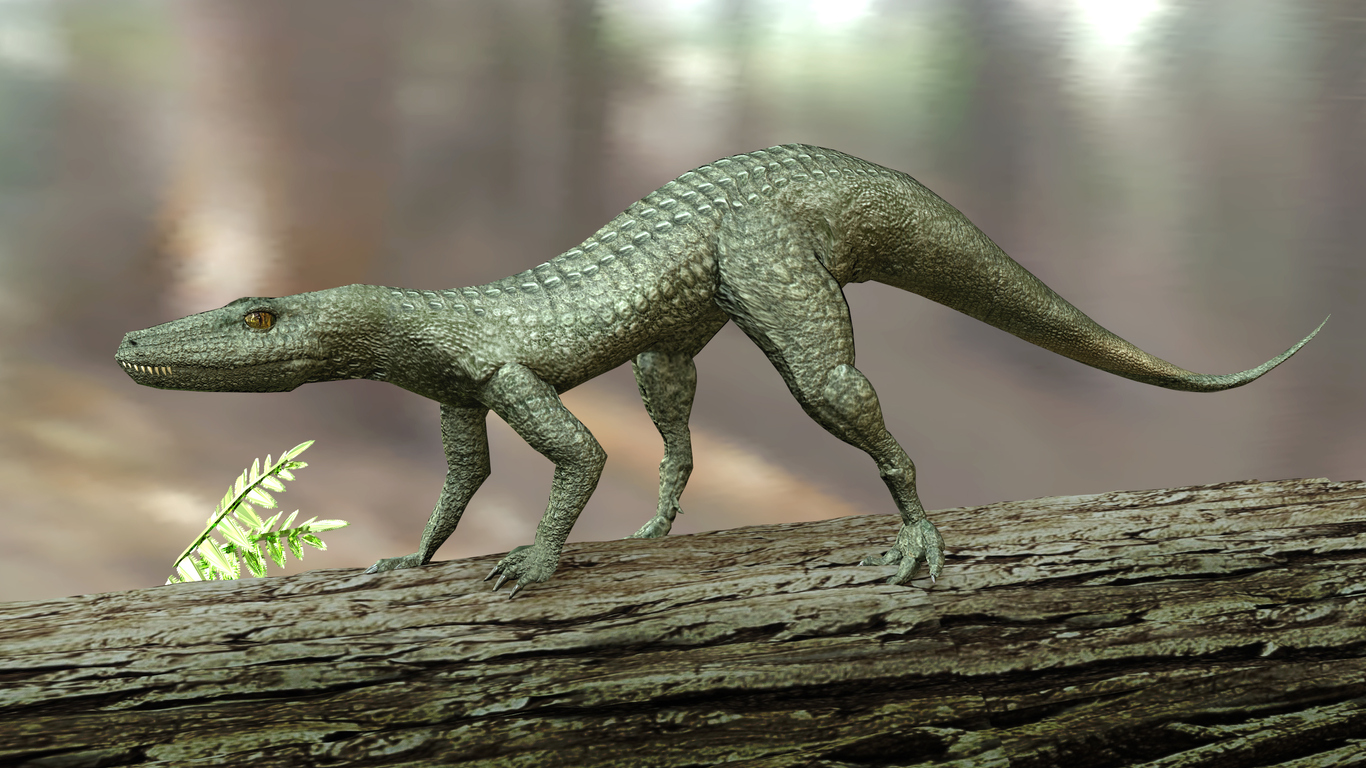Scientists argue climate crisis caused 6th mass extinction 233 million years ago


A free daily email with the biggest news stories of the day – and the best features from TheWeek.com
You are now subscribed
Your newsletter sign-up was successful
The ongoing Holocene extinction is often referred to as the Earth's potential sixth mass extinction, but a new study claims it would actually be the seventh if that prediction comes to fruition.
Authors of the study, published Wednesday in Science Advances, suggests the Carnian Pluvial Episode, a mysterious time of sudden climate and environmental change in the Late Triassic some 233 million, was "clearly a mass extinction," adding to the "big five" over the past 500 million years that have already been recorded. A team of scientists reviewed geological evidence and the fossil record, The Guardian reports, coming to the conclusion that enormous volcanic eruptions occurred at the same time as a global loss of plants and animals.
One of the scientists who worked on the project, Jacopo Dal Corso, said there is evidence the volcanic explosions pumped vast amounts of greenhouse gas into the air, which drove global warming and ultimately harmed much of the Earth's biosphere, although dinosaurs during that time spread out widely and became the dominant terrestrial vertebrates for reasons that still aren't clear. The paper says modern coral reefs and other recognizable ecosystems also formed in the aftermath.
The Week
Escape your echo chamber. Get the facts behind the news, plus analysis from multiple perspectives.

Sign up for The Week's Free Newsletters
From our morning news briefing to a weekly Good News Newsletter, get the best of The Week delivered directly to your inbox.
From our morning news briefing to a weekly Good News Newsletter, get the best of The Week delivered directly to your inbox.
Stephen Brusatte, a paleontologist at the University of Edinburgh who wasn't involved with the research, was impressed with the study and said the researchers "have set out an ambitious agenda for testing this big, bold idea that dinosaur diversification was triggered by climate and environmental change," but he also acknowledged more needs to be done to see if the two events are really linked. Still, he said, "I think the odds are good." Read more at The Guardian.
A free daily email with the biggest news stories of the day – and the best features from TheWeek.com
Tim is a staff writer at The Week and has contributed to Bedford and Bowery and The New York Transatlantic. He is a graduate of Occidental College and NYU's journalism school. Tim enjoys writing about baseball, Europe, and extinct megafauna. He lives in New York City.
-
 Political cartoons for February 20
Political cartoons for February 20Cartoons Friday’s political cartoons include just the ice, winter games, and more
-
 Sepsis ‘breakthrough’: the world’s first targeted treatment?
Sepsis ‘breakthrough’: the world’s first targeted treatment?The Explainer New drug could reverse effects of sepsis, rather than trying to treat infection with antibiotics
-
 James Van Der Beek obituary: fresh-faced Dawson’s Creek star
James Van Der Beek obituary: fresh-faced Dawson’s Creek starIn The Spotlight Van Der Beek fronted one of the most successful teen dramas of the 90s – but his Dawson fame proved a double-edged sword
-
 British warship repels 'largest Houthi attack to date' in the Red Sea
British warship repels 'largest Houthi attack to date' in the Red SeaSpeed read Western allies warn of military response to Iranian-backed Yemeni rebels if attacks on ships continue
-
 Houthi rebels claim Red Sea ship attacks
Houthi rebels claim Red Sea ship attacksspeed read Iran-backed Yemeni group vows to escalate aggression towards Israel-linked vessels in revenge for Gaza war
-
 Israel plans next phase of Gaza war as first hostages released
Israel plans next phase of Gaza war as first hostages releasedSpeed read After four-day ceasefire 'we will not stop' until destruction of Hamas, says Israel
-
 Mob storms Russian airport 'looking for Jews'
Mob storms Russian airport 'looking for Jews'Speed Read Plane from Israel surrounded by rioters chanting antisemitic slogans after landing in Russia's Dagestan region
-
 Tuberville's military promotions block is upending lives, combat readiness, 3 military branch chiefs say
Tuberville's military promotions block is upending lives, combat readiness, 3 military branch chiefs saySpeed Read
-
 Ukraine's counteroffensive is making incremental gains. Does it matter in the broader war?
Ukraine's counteroffensive is making incremental gains. Does it matter in the broader war?Speed Read
-
 US commissions first-ever Navy ship in a foreign port
US commissions first-ever Navy ship in a foreign portSpeed Read
-
 British spy chief, Wagner video suggest Prigozhin is alive and freely 'floating around'
British spy chief, Wagner video suggest Prigozhin is alive and freely 'floating around'Speed Read
